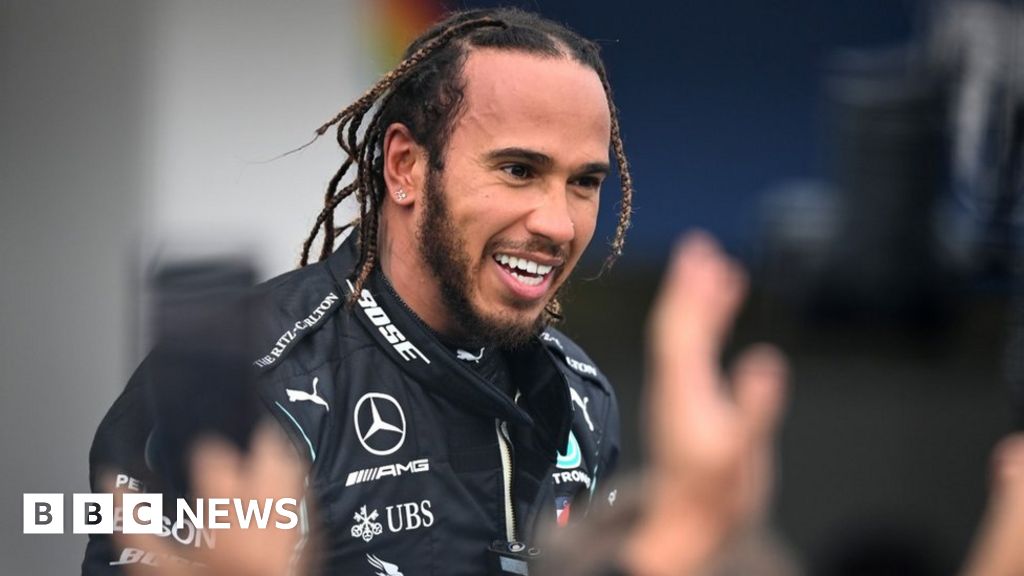Formula 1 champion Lewis Hamilton has issued a statement “clarifying his thoughts” and confirming he is not anti-vaccine after sharing a video linked to unfounded conspiracy theories about a coronavirus vaccination.
Hamilton originally shared the post about Bill Gates and vaccine trials on his Instagram story to his 18 million followers. It stayed up for 13 hours before he deleted it.
The F1 driver has now issued a statement on the same platform, explaining that he “hadn’t actually seen the comment attached” to the post in question, saying that he’s “only human”.
What did the post say?
The post that Hamilton shared featured a video of Microsoft co-founder Bill Gates being interviewed on US television about progress being made on a coronavirus vaccine.
In the interview, Mr Gates addresses concerns about side effects reported during vaccine trials – and also dismisses unfounded rumours that the vaccines are a way of “microchipping” people.
The account which posted the video, ‘Kingbach’ (which has more than 19 million followers), has added the caption: “I remember when I told my first lie” (along with a laughing emoji).
It suggests that Bill Gates’s reassurances over vaccine safety and his dismissal of the conspiracy theory are untrue.
The original Instagram post shared by Hamilton remains on the site with more than one million views. BBC News has contacted Facebook – which owns Instagram – for comment.
Hamilton was widely criticised on Twitter and other social media sites for sharing the post.
What is the Gates conspiracy theory?
Bill Gates has found himself at the centre of a number of baseless conspiracy theories during the coronavirus pandemic.
Most centre on his support for and funding of vaccine research – and previous comments he’s made about pandemics.
False claims range from suggestions that Bill Gates and his wife Melinda created Covid-19 in order to profit from a vaccine to the unfounded conspiracy theory that the pandemic is a cover for a plan to implant trackable microchips in humans.
The Gates Foundation has called the claims “false” and BBC Reality Check has debunked them.
What has Hamilton said?
In the clarification issued on his Instagram story, Hamilton said he’d “noticed some comments” on his original post and could understand why his thoughts “might have been misinterpreted”.
He said he had not seen the comment attached to the video he shared and “has a lot of respect for the charity work Bill Gates does”.
He added: “I also want to be clear that I’m not against a vaccine and no doubt it will be important in the fight against coronavirus” – although he did express concerns about potential side effects and how a vaccine might be funded.
